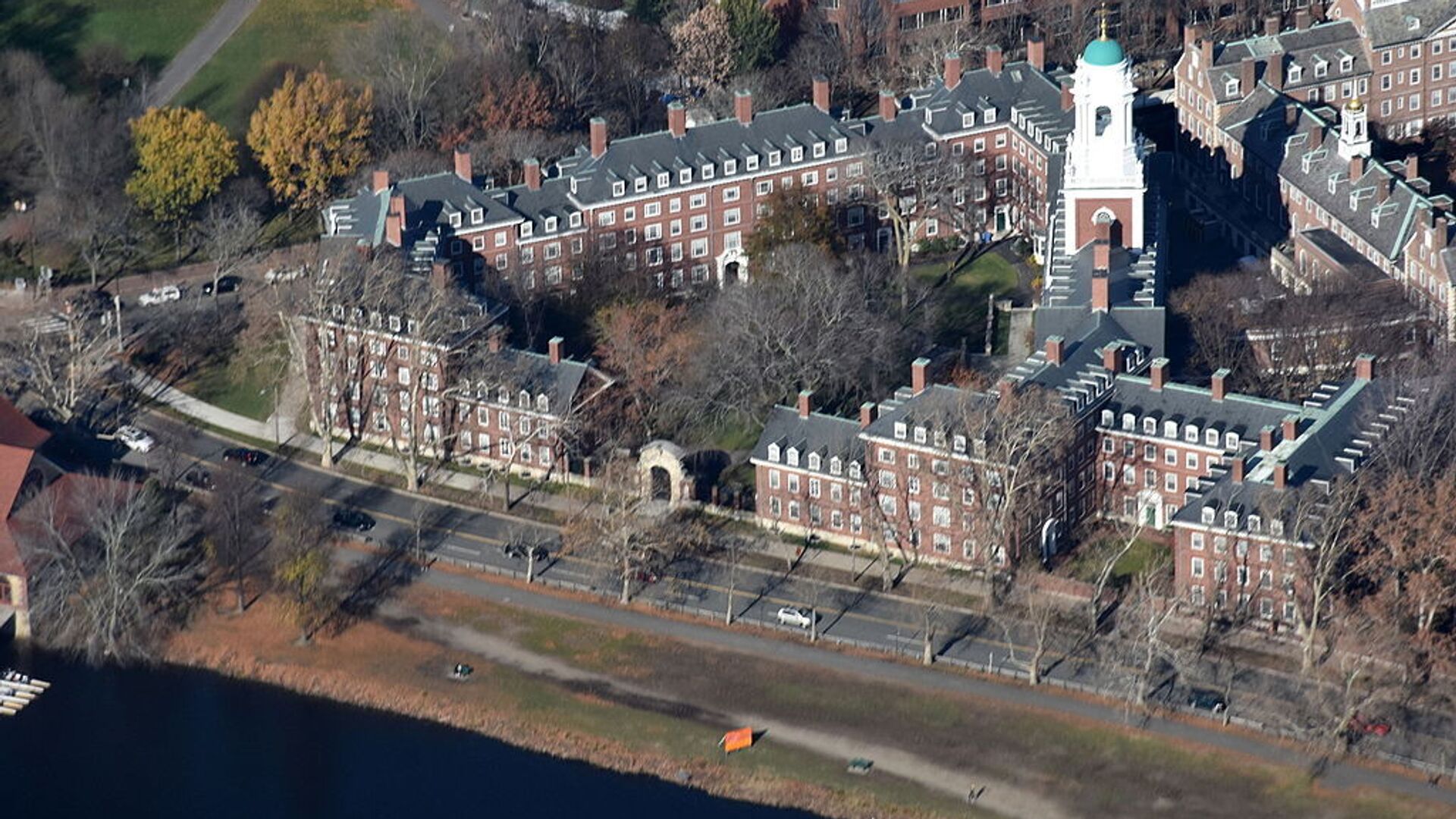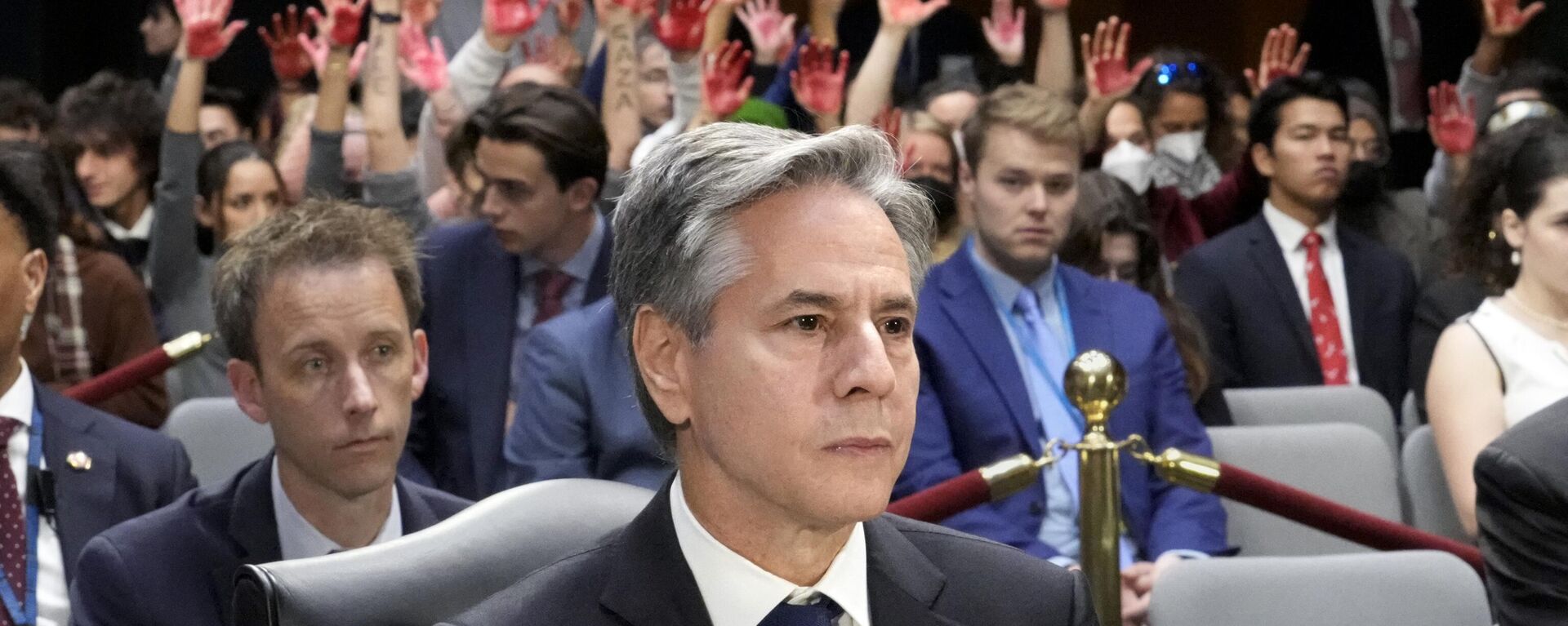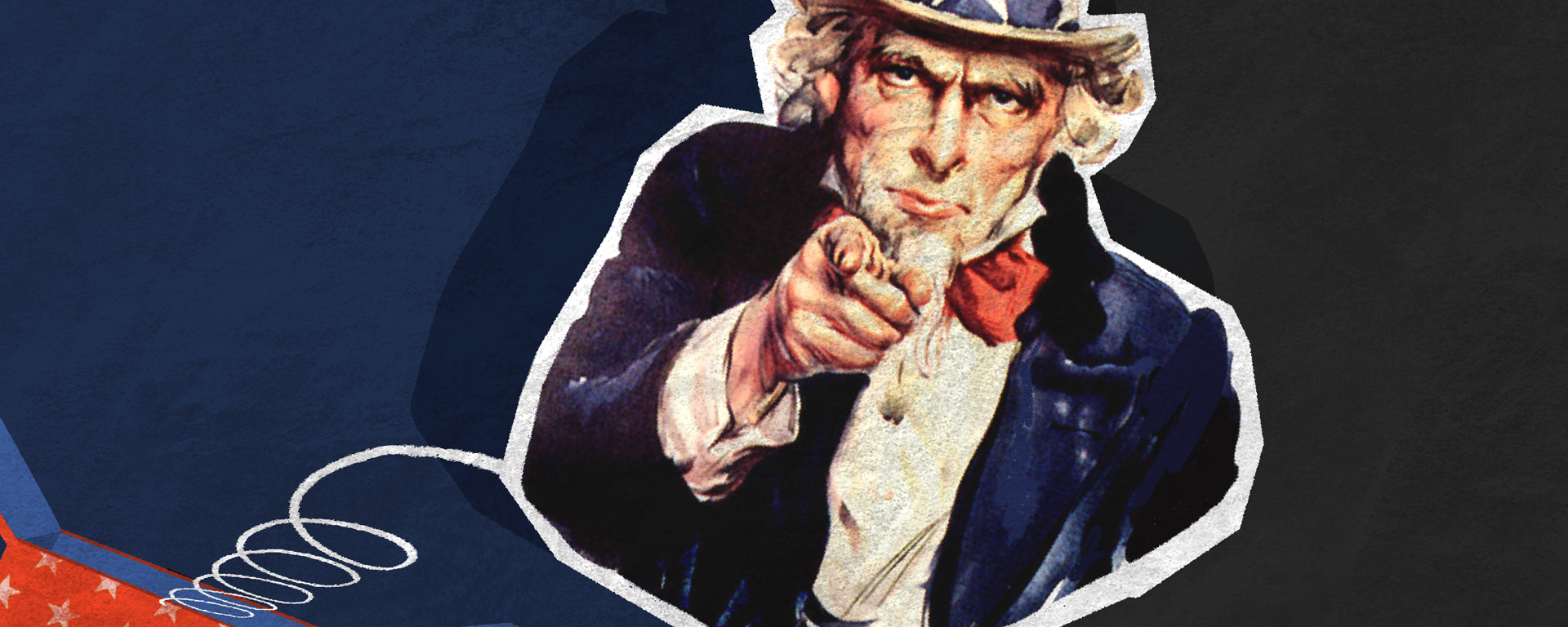US Crackdown on Pro-Palestine Organizing Shows ‘Contradiction’ in Foreign Policy Priorities
Subscribe
A recent episode in Congress highlighted a longstanding contradiction in US foreign policy: on the one hand, projecting an open-minded image of Western culture is a major part of US soft power, especially to foreign students on US college campuses; on the other is Washington’s unshakeable support for Israel.
Journalist and political analyst Caleb Maupin told Radio Sputnik’s The Critical Hour on Tuesday that the CIA has long worked to cultivate a “controlled opposition” on the left that would repeat both Western-critical ideas but also defend Western society, whether it was against communism during the Cold War or against “authoritarianism” in the decades since the fall of the Soviet Union.
“This whole thing about the ‘cultural Cold War’ and comparing the early Cold War, which was, you know, the Korean War, McCarthyism, leading into Vietnam, to the late Cold War, which was ultimately the way the Soviet Union was brought down, the color revolutions in 1989 across Eastern Europe, and then eventually the fall of the Soviet Union, was there was a very big shift in how the US presented itself. At the beginning of the Cold War. It was ‘Western democracy and Christianity against the evil commies’, and in the late Cold War, it very much shifted to ‘the USA just wants to spread human rights around the world’ and a lot of confusing ideological manipulation.”
“And you can't underestimate the role of things that don't even seem political, like art galleries and paintings and all of that, right? Coming out of the Great Depression, the school of art that was so popular in the United States was what they called ‘social realism.’ Go to a post office and look at the murals, you know, it tends to show working-class people, tends to show them a little bit stronger and more muscly than they would be in real life. It tends to show working class people in kind of an optimistic way, people of different races working together, and glorifies the bulk masses of the American people, working hard, creating wealth. That's social realism. And in the 1950s, we understand the CIA argued that that school of social realism was somehow an ideological threat. And so they started funding modern art.”
“And we now know the CIA funded Jackson Pollock and did everything they could. You know, this guy who just splattered paint on a canvas, who was a little bit of a leftist, who'd been around the Communist Party in the 1930s - but he made this art that had no shapes or images, and it was just kind of painting splatter on a canvas. And the CIA thought, well, this is what we want to spread around the world. And they teamed up with the Rockefeller think tanks to make it popular. And you would think that that has no political value, right? I mean, who cares that the paintings you're looking at - are they people, are they splattered images - but it did have political value: it was disorienting, especially to the kind of intellectual circles where the Soviet Union had drawn great support in previous times,” Maupin explained.
“During McCarthyism, it was, you know, anything that was left-wing or socialist was viewed with suspicion. The US moved in a very, very right wing direction. It wasn't just a crackdown on communism, there was a big crackdown on the LGBT community, they banned any gay person from having a government job. There were strict censorship laws in the media, etc. And it was kind of this right-wing conservative crackdown on the alleged left-wing communists that were everywhere.”
“Well, you know, starting in the mid-fifties, we saw a huge effort by the CIA not to push things in a rightward direction, but to push them in a left-wing direction that they could control. And that's what the Congress for Cultural Freedom Program of the CIA was about. It was about finding leftists and socialists who were not in favor of the Soviet Union, who would support their regime-change interventions around the world, and would repeat their propaganda against the socialist countries. They found a way that you could be a leftist, you could be a critic of US society, a critic of American culture, a critic of militarism, but also be on their side when it mattered,” Maupin said.
“And we also know about how later in the 1960s, you had Project MKULTRA, which was the CIA's drug program, in which they worked to flood college campuses and other areas where you'd find dissidents with hallucinogenic drugs. They had experimented with LSD and other drugs as potential mind-control vehicles, and throughout the 1960s, there were big sections of the population that were going out and protesting and such. We know that due to the efforts of the CIA, a lot of hallucinogenic drugs were distributed in those circles and a lot of lives were really damaged by the widespread use of hallucinogens. I mean, you read about, you know, Google ‘Operation Midnight Climax’, it was called, where they just walked through San Francisco dropping LSD into random peoples’ drinks, many people had no idea it was going to happen, they just started hallucinating. I mean, this was some pretty dangerous stuff they were doing to the American people.”
Maupin also noted how the CIA has worked hard to co-opt elements of the intelligentsia, including journalists and academics, including gaining control over the American Newspaper Guild in the late 1960s. However, that practice never disappeared, and recent events revealed a deep contradiction in US interests on college campuses after the US Congress grilled the heads of several leading US universities over growing pro-Palestine sentiments on their campuses.
“In Zbigniew Brzezinski’s book - he was the director of national security for the Carter administration, one of the big strategists of the late Cold War - in his book ‘The Grand Chessboard’, about how to defeat Russia, he spends a lot of time talking about how important Harvard University and MIT and schools like that are, because people from around the world go and study at those universities and through that process are cultivated to like the United States, become friendly allies of the United States, perhaps business partners of the United States, when they go back to their home country,” Maupin explained. “And he specifically talks about the role that these Ivy League institutions play.”
“Part of that - you know, a lot of those countries that people are coming from are Muslim countries or are countries where people are not as supportive of Israel as they are over here. And part of the role that those schools play is they show people that the United States is a much more open and tolerant society than detractors of the United States would like to believe. And also, they work very, very hard to present an image of the United States that isn't particularly accurate. You know, Harvard is a lot more open-minded, there's a lot more different ideas floating around on the Harvard campus than there are in middle America. But it's very much about creating an image of the United States as an open, free society.”
“So, having people at Harvard University who speak against Israel and support the Palestinians actually kind of helps the United States in the long term, but Israel certainly doesn't approve, especially at a time like this, where they're just going after Gaza and they want all the support they can get," Maupin said. “And this shows kind of a conflict of interest. On the one hand, those Ivy League schools are about courting people from around the world and getting them to see that America has room for different ideas, etc. But at the same time, you know, there are a lot of pro-Israel people in the United States who say, especially at Harvard, especially at MIT, especially at Yale and Princeton, we want everyone supporting Israel as loudly as they can. This is a contradiction.”




